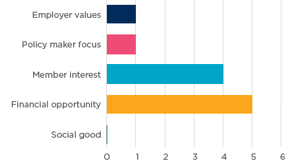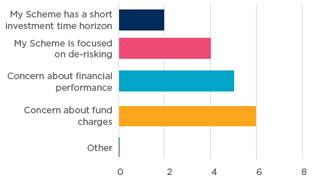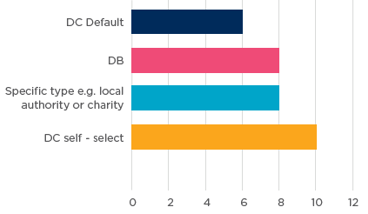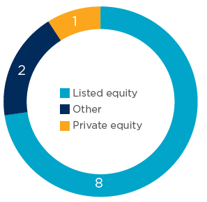Is impact investing
relevant to your pension scheme?
Our viewpoint
11 July 2019
The world is changing. Both the government and individuals are placing more and more emphasis on responsible corporate practices. This seemingly unstoppable trend brings potential opportunities for investors.
Indeed, investment regulations are now requiring pension trustees to have a policy on environmental, social and governance factors (or ESG for short). As a result, ESG has been moving up meeting agendas rapidly. It has left some trustees asking how to develop a more ESG-focused portfolio. One such approach is ‘impact’ investing.
What is impact investing?
Impact investing seeks to achieve positive social or environmental benefits alongside a financial return. This involves investment in companies or projects that address a particular social or environmental issue (eg clean energy, health or education). Crucially for pension scheme trustees, it is possible to do this while potentially enhancing risk-adjusted returns.
What do pension scheme trustees think of impact investing?
We recently hosted a roundtable discussion with trustees from a wide range of pension schemes. Here I report our findings, along with some of my thoughts. We would love to hear your views on impact and whether they differ to those described below.
Which asset class within impact investing would be of most interest to your scheme?
Our guests at the roundtable overwhelmingly preferred impact investment within listed equities given the ease of access, liquidity and relatively low fees. This involves investing, typically via a pooled fund, in public companies with a social or environmental focus that are listed on a recognised exchange.
There are other forms of impact investing, such as through bonds (eg social / green) or infrastructure (eg renewable energy), but our guests were less interested in these.
Why consider impact investing?
The most popular reason for considering impact investing was the financial opportunity.
It is likely that governments will want the private sector to shoulder much of the task of meeting the Sustainable Development Goals, which creates a supportive policy environment for businesses and investors alike. There is also an argument that you would be investing in companies that, by their very nature, are sustainable over the long-term and hence well-positioned to deliver good long-term returns.

Why wouldn’t you consider impact investing?
To access the opportunity, you must appoint an ‘active’ investment manager. This involves higher management fees compared with investing ‘passively’ and, as with any active investment approach, greater reliance on the manager’s skill to make the right calls.

Who is impact investing relevant for?
The consensus at the roundtable was that impact investing could be applicable to all types of pension scheme, from mature defined benefit schemes to the ‘self-select’ fund range offered to members of a defined contribution scheme.
I agree that impact investing is relevant for most types of pension scheme. However, if you are looking to ‘buy out’ your pension scheme with an insurer in the next few years, your short time horizon is likely to rule out the most meaningful options for impact investing.

There are many different approaches to impact investing, with a range of options to address different trustees’ risk and return objectives. We’d be pleased to discuss which ones might be right for you.
Possible next steps for you
You may wish to organise an introductory session on impact investing for your trustee board or quiz your investment managers on impact (and ESG issues more generally) to find out what they are doing in this space.


